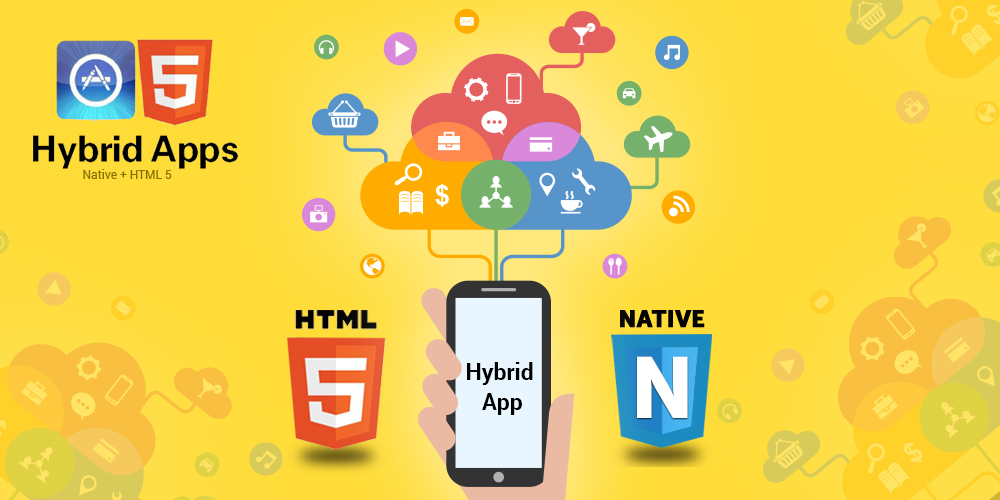
Is It Commendable To Go For Hybrid Mobile App Development?
Hybrid App Development: Frameworks which helps you to reduce redundant activities as well as decrease the development cost to leverage the benefits of technology 100%.
A permanent interrogation in mobile App Development is whether it’s more helpful to construct apps that are coded for the native platform or to perform Hybrid Mobile App Development. At the point when tools alike PhoneGap appeared, hybrid option got to be accessible that could utilize native code combined with web languages to acquire a set of attributes that no native or web applications have.
Price Tag
Native applications frequently charge extra for development process due to the different language and tooling environments, which need more speculation in developer abilities if you want to develop for multiple platforms. However, expense is reliant on numerous other components also, so native applications won’t be the most lavish choice for every situation. No matter which type of app you construct, quality will dependably be costly.
Ability of Testing
Developed and predictable native platforms with established tools have a tendency to make testing simpler than the frameworks that perform Hybrid App Development using JavaScript-to-native communication. App testing can also be a battle if the developer isn’t talented and educated about the JavaScript environment. Local app testing gets to be progressively troublesome if you keep up various codebases and supports a several devices.
Performance
Native code will dependably be the most direct way to the tetchiest performance. Performance of Hybrid app can be solid, however will in some cases suffer relying upon how the tools construct code to interface with the native Operating System. Web and hybrid performance will also enhance as mobile browsers get speedier JavaScript engines.
Reutilization of Code
The greatest weakness of native apps is their absence of portability to different platforms. The web apps are all about having single codebase and run it on any significant mobile platform. Hybrid App Development is similar, as you able to reutilize a huge quantity of code for every platform. On the other hand, web applications aren’t 100% versatile. Hottest web guidelines aren’t generally supported by the browsers on each gadget, so even web developers need to worry over similarity issues.
Access of Device
In spite of the fact that web applications can get to some basic APIs of mobile device, similar to the GPS for geo location applications, they still have controlled access of hardware. There are some new benchmarks presently being drafted by the W3C that will give web applications a couple of more abilities for getting to APIs of gadget, but for the following couple of years, Hybrid App Development and local application development will give altogether further access to APIs of devices.
Stay Up-to-Date
If automatic updates are not performed by the app, they can be a genuine disturbance to the customer. Some updates can performed by the Hybrid apps through the web without the approval of app store, but hybrid and native apps still need to jump over the loops of app store endorsement, and they have to download any updates from the app store.
Search Engine Optimization
This may not be the most eye-catchy principle for native apps, but rather in the event that you need the textual and semantic content of your application to be discovered and positioned via web search engines, your application needs to have a web component. A web component is needed as applications are closed surroundings, and web search engines can’t get to that info.
The thing to recall about Hybrid App Development is that it’s not a solitary methodology; rather, it’s a range of choices running in the middle of web and native. Figuring out whether it’s the right decision for you needs assessing the options exhibited in this article.
Source: http://bit.ly/1U8PGyW
